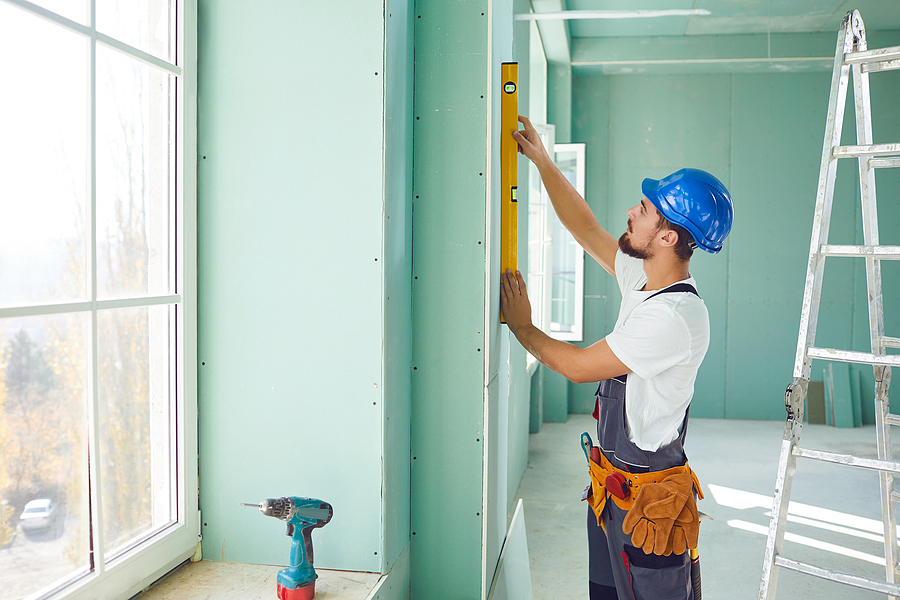Drywall is the unsung hero of most homes. It shapes your walls, provides a canvas for creativity, and protects against external elements. But drywalling isn’t just about standard sheets anymore. Advancements in materials and technology have introduced modern drywall options catering to specific needs, from soundproofing to eco-friendly solutions.
Whether you’re a DIY enthusiast, homeowner, or renovator, understanding the variety of drywall trends available can help you make informed decisions for your project. This guide dives deep into the types of drywall, their benefits, and practical tips to enhance your next project.

Discovering the Types of Drywall in 2025
Standard Drywall
This is the traditional option you’ll find in most homes. Ideal for general-purpose use, standard drywall is affordable and easy to install. It’s available in different thicknesses, with 1/2 inch being the most common for walls and 5/8 inch for ceilings.
Pros:
- Cost-effective
- Readily available
- Suitable for most rooms
Cons:
- Limited specialty features
- Susceptible to moisture and sound leakage
Moisture Resistant Drywall
For bathrooms, kitchens, or anywhere dampness is a concern, moisture-resistant drywall (often called Green Board or Mold-Resistant Drywall) is a game-changer. The moisture-repellent coating and mold-resistant core enhance durability in wet environments.
Popular Example: Mold-Resistant Drywall
Specifically engineered to resist mold growth.
Pros:
- Ideal for high-moisture areas
- Reduces mold risk
Cons:
- Slightly more expensive than standard drywall
Fire Resistant Drywall
Fire-resistant drywall, often referred to as Type X Drywall, provides enhanced safety, particularly for certain code-required areas like garages or stairwells. Its reinforced gypsum core holds up longer under high heat, giving you added peace of mind.
Pros:
- Meets safety code requirements
- Adds protection in fire-prone areas
Cons:
- More difficult to cut and shape due to its density
Soundproof Drywall
Tired of hearing thudding footsteps or noisy neighbors? Soundproof drywall, like SoundBreak, features a sound-dampening layer to minimize noise transfer between rooms, creating quiet and serene spaces.
Popular Example: SoundBreak Drywall
Specifically engineered to reduce noise transmission.
Pros:
- Great for bedrooms, offices, or media rooms
- Significantly improves sound isolation
Cons:
- Higher cost compared to standard drywall
Eco-Friendly Drywall
For the environmentally conscious, eco-friendly drywall options like EcoRock are making waves. Made from recycled materials, these options are a greener choice without compromising strength or durability.
Popular Example: EcoRock
Gypsum-free, made from industrial byproducts and recycled materials.
Pros:
- Sustainable and eco-friendly
- Contributes to LEED certification for buildings
Cons:
- Might be harder to source locally
Comparing Drywall Options
| Type of Drywall | Best For | Drawbacks |
| Standard Drywall | General-purpose use | Lacks specialty features like moisture or fire resistance |
| Moisture-Resistant | Wet environments | Slightly pricier than standard drywall |
| Fire-Resistant | Fire-prone areas | Heavier and harder to install |
| Soundproof | Reducing noise | Higher cost |
| Eco-Friendly | Sustainable builds | Limited availability in some areas |
Get a Free Drywall Installation Quote!
Factors to Consider When Choosing Your Drywall
- Room Requirements: Bathrooms require moisture-resistant boards, while media rooms benefit from soundproofing.
- Budget: Balance your budget with features that genuinely improve your space.
- Sustainability Goals: Opt for eco-friendly boards to reduce your environmental impact.
- Code Compliance: Certain areas, like garages, may require fire-resistant drywall by law.
- Ease of Installation: If you’re tackling this project solo, lightweight drywall can save time and hassle.
Tips for Installing Drywall Like a Pro
Whether you’re a seasoned DIYer or new to drywalling, efficiency and precision are key. Follow these expert tips for flawless results.
- Measure Twice, Cut Once: Minimize waste and ensure an exact fit by double-checking your measurements.
- Use the Correct Tools: Equip yourself with a drywall knife, T-square, and drywall screws for accuracy.
- Apply Joint Compound in Thin Layers: Allow each coat to dry before applying the next to avoid lumps.
- Sand for a Smooth Finish: Once the compound is dry, sand it down for a seamless surface before painting.
- Ensure Proper Ventilation: Reduce dust and improve drying times by working in well-ventilated areas.
Troubleshooting Common Drywall Problems
Cracks
- Issue: Small cracks can appear over time.
- Solution: Fill them with joint compound; reinforce larger cracks with mesh tape.
Dents
- Issue: Shallow dents happen from accidental bumps.
- Solution: Fill with joint compound and sand smooth. Deep dents may require replacing the damaged section.
Nail Pops
- Issue: Nails or screws that push through drywall.
- Solution: Re-secure the drywall with screws above and below the popped nail, then cover with compound.
Water Damage
- Issue: Staining, bubbling, or sagging caused by leaks.
- Solution: Replace the affected areas and fix the source of the water problem before re-installing.
Mold Growth
- Issue: Damp conditions causing hazardous mold on drywall.
- Solution: Remove the moldy drywall, treat the area with anti-mold solution, and address moisture issues.
Bubbling Paint
- Issue: Paint that lifts from the drywall surface.
- Solution: Scrape the loose paint, sand the area, apply primer, and repaint.
Key Takeaways
Modern drywall options provide endless opportunities to optimize your home. Whether you need soundproof walls, moisture-resistant drywall, or an eco-friendly solution like EcoRock, there’s a perfect choice for your project.
Investing time in understanding drywall trends and following best practices for installation can ensure great results and a space you’ll love for years to come.
If you’re still unsure about which option serves your needs best, consult a professional drywall specialist today to get expert guidance.
For expert advice, top-quality materials, and flawless drywall installation or repair, trust the professionals at Drywall By Renso. Serving the Indianapolis area with dedication and expertise, we are committed to bringing your vision to life.
Talk to a Drywall Contractor Now
Related Post: The 3 Main Types of Drywall
